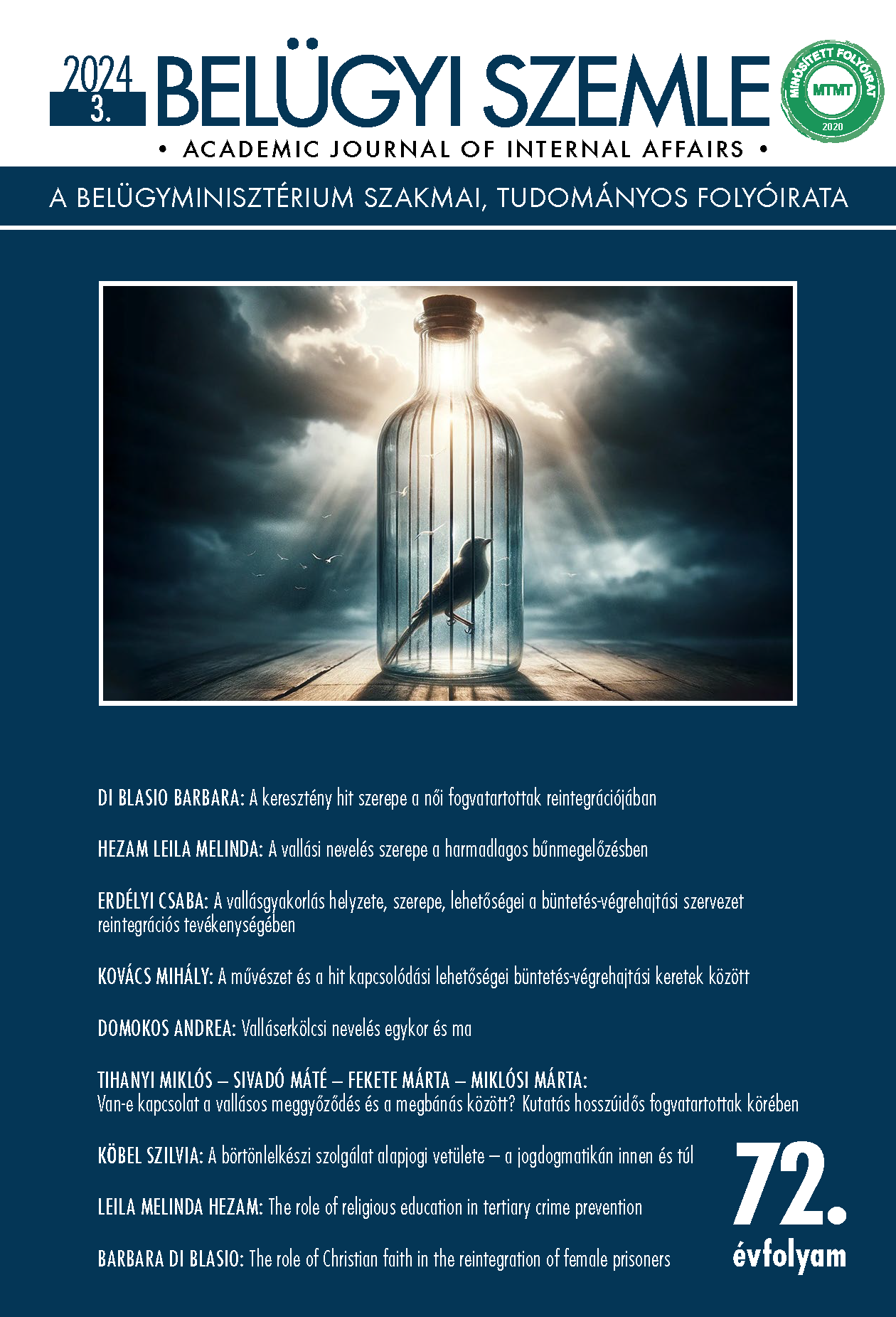Abstract
Aim: This study aims to examine the ministry of prison chaplains in the context of fundamental rights, in particular freedom of thought, conscience and religion.
Methodology: The analysis uses the legal doctrinal approach of fundamental rights as its primary method of research. This is complemented by a public law context going back to the regime change and an international perspective, which are common tools of comparative method of legal scholarship and provide reference points in the analysis.
Findings: Prison chaplaincy is linked to both the individual and collective aspects of religious freedom, and there is both a rights and obligations side to this fundamental rights relationship. The paper will discuss the fundamental rights of prison chaplaincy, including the right of prisoners to individual and collective religious practice, as a subset of freedom of conscience and religion in the period since the change of regime. Finally, the paper briefly reflects on the case law of the European Court of Human Rights on the exercise of religion by prisoners.
Value: The study contributes to the complex issue of religion and reintegration through an analysis of constitutional law.

This work is licensed under a Creative Commons Attribution-NonCommercial-NoDerivatives 4.0 International License.
Copyright (c) 2024 Academic Journal of Internal Affairs

